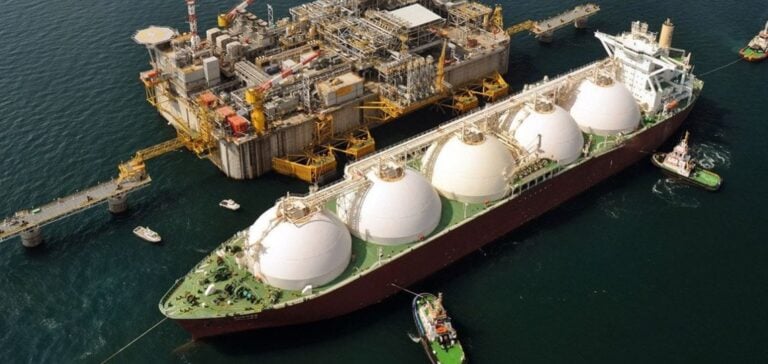Egypt’s state-owned EGPC reached a major milestone when it awarded its first and largest liquefied natural gas (LNG) tender on June 26. With a total of 20 cargoes, this initiative aims to secure the country’s energy supply. The bids received from 15 major players in the sector testify to the importance of this tender on the international market.
This unprecedented volume of LNG cargoes marks a significant milestone for Egypt. Historically, LNG tenders in Egypt were limited to much smaller volumes, often one cargo at a time. This drastic increase reflects the country’s increased efforts to meet growing energy demand and the need to diversify its supply sources, as well as to cope with shortages of pipeline gas.
Enthusiastic market response
The tender attracted competitive proposals, with a combination of fixed prices and prices indexed to the TTF (Title Transfer Facility). Cargo prices range from TTF plus $1.6/MMBtu to TTF plus $2/MMBtu, including a margin of 40 cents/MMBtu for payment terms extended to 180 days. These include Total, BP, Vitol, Trafigura and Aramco.
The market’s enthusiasm for this tender is an indicator of the confidence of international players in the stability and efficient management of EGPC. The pricing structure, including fixed and indexed options, minimized risk for suppliers while guaranteeing a competitive price for Egypt.
A Logistical and Strategic Challenge
EGPC managed this tender against a backdrop of strong summer demand for energy, exacerbated by reduced domestic production and geopolitical tensions in the Middle East. The logistical challenge of transferring these cargoes to Egypt within a tight timeframe was successfully met.
The speed and efficiency with which EGPC finalized this tender testify to the robustness of its organizational capabilities. The rapid transfer of LNG cargoes is crucial to meeting the growing demand for electricity during peak summer periods, when high temperatures significantly increase energy consumption.
A Necessary Return to Imports
For the first time since 2018, Egypt is importing LNG cargoes again. This strategic decision comes after a period of strong LNG exports to Europe, making the future of winter exports uncertain. The Egyptian government has allocated $1.2 billion to guarantee a continuous supply of LNG and heavy fuel oil, to avoid power cuts.
Importing LNG has become a necessity for Egypt due to declining domestic production and increasing domestic demand. Geopolitical tensions in the region also played a role in this decision, highlighting Egypt’s vulnerability to energy supply disruptions.
Financial and strategic outlook
The purchase of the 20 LNG cargoes could cost between $882 and $910 million, according to Commodity Insights estimates. Prices for cargoes delivered in August for North-West Europe and the Eastern Mediterranean reflect a premium of 0.5 cent and 10 cents/MMBtu respectively over the TTF.
The financial implications of this massive LNG purchase are significant. The Egyptian government has to juggle high import costs with the need to keep energy prices affordable for its population. The premium on delivery prices for North-West Europe and the Eastern Mediterranean reflects the complex dynamics of the global LNG market, where prices can fluctuate rapidly in response to a variety of geopolitical and economic factors.
This strategic move underlines Egypt’s efforts to stabilize its energy supply in the face of growing challenges. The coming months will be crucial for observing how the country manages these imports and adjusts its overall energy strategy. Egypt’s ability to navigate this complex energy landscape will largely determine its economic stability and future growth.





















